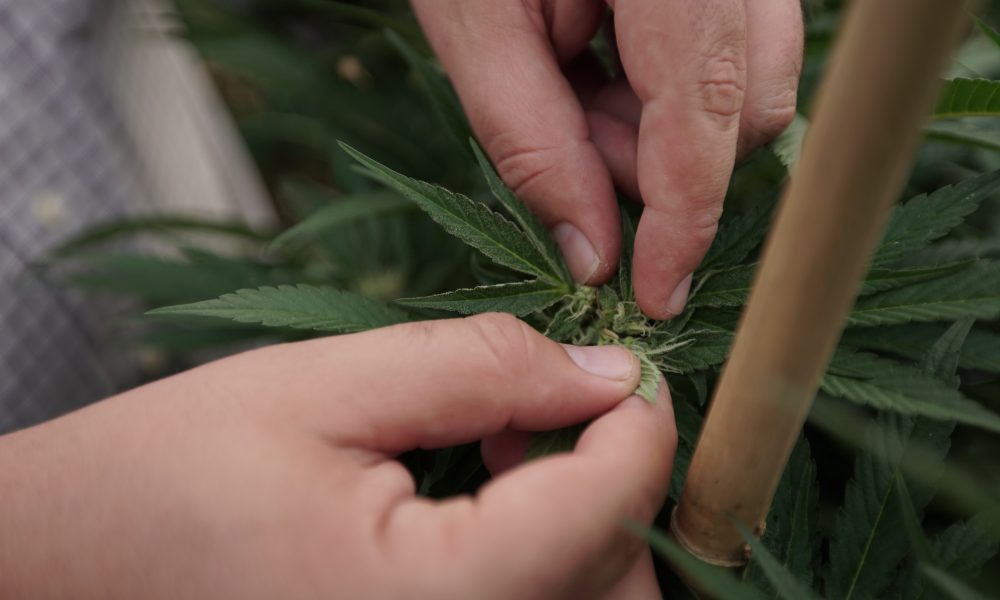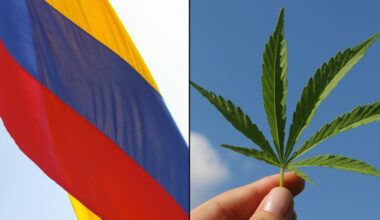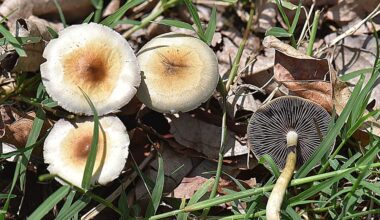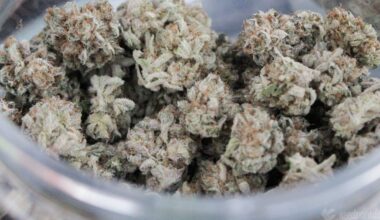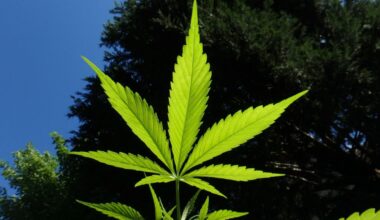“The lies, hypocrisy and inaction are enough to make anyone cynical…but a better world is indeed possible.”
By Eric Goepel, Veterans Cannabis Coalition
For a nation that puts its military veterans in such high esteem and notionally spends hundreds of billions of dollars on caring for them, the failures of the U.S. government to even marginally reduce suicide or overdose among veterans stands as a stark reminder that more can—and should—be done.
In the last 20 years that we have been working together as allies in Afghanistan and elsewhere, Canada has gone from federally allowing for the medical use of cannabis to legalizing it for all adults. For more than ten years, they have been reimbursing veterans for “cannabis for medical purposes,” starting with 37 clients in 2011 and expanding to more than 18,000 in 2021. Canadian veterans, unlike their U.S. peers, are seeing dropping rates of suicide
There is no question that veterans of the U.S. Armed Forces are using cannabis.
To what extent, it is hard to say. Surveys by veterans service organizations and government data like the National Survey on Drug Use and Health make it difficult in determining use patterns because of their limitations in precision and scope.
At this point, however, more than half of the county’s 18 million veterans live in states that have legalized cannabis for adult use. When you consider that all but a small number have passed laws that acknowledge its therapeutic value, the vast majority of veterans have more access to state-legal cannabis than ever before.
In the midst of all this progress, there stands the U.S. Department of Veterans Affairs (VA). Since the first introduction of the Veterans Equal Access Act by Congressman Earl Blumeanuer in 2014, the VA under three presidents and four secretaries has opposed every cannabis-related reform aimed at the department. That includes falsely stating in a 2018 letter from VA Secretary David Shulkin to the House Committee on Veterans’ Affairs leadership that the VA could not even conduct research on cannabis.
Over the last eight years, hundreds of representatives and senators have sponsored and cosponsored bills which the VA has uniformly rejected, including:
Codifying a Veteran Health Administration directive protecting veterans who disclose cannabis use.
Allowing VA physicians to fill out paperwork to allow veterans to access state medical marijuana programs.
Conducting mandated research investigating the medical applications of cannabis.
Creating a safe harbor for veterans to possess cannabis on VA property.
The budget for the VA was $40 billion in 2001; the most recent budget request for 2023 is $300 billion. In that same time period, which includes 3.5 million Americans deploying to Iraq and Afghanistan and 7,052 direct war deaths, more than 127,000 veterans have died by suicide. In fact, there are more suicides in 2020 (6,146) than when VA started collecting data in 2001 (6,001) despite the veteran population dropping by 5 million (25 percent) over that timespan.
Veteran suicide prevention, by all accounts to the public, is the VA’s “top clinical priority.” In turn, veterans have grown increasingly vocal about sharing their lived experience of using cannabis—THC, CBD and other cannabinoids—as a tool to dramatically reduce their suicide risk by substituting cannabis for more harmful, less effective substances.
Cannabis, for some veterans, offers effects like pain management, sleep enhancement and reduced anxiety and depression. In comparison to the cocktails of opioids, sleeping pills, antidepressants and antipsychotics they are regularly prescribed by the VA and private physicians, cannabis delivers far better results at a fraction of the mental and physical cost.
While those experiences are not universal, even the VA grudgingly admits that specific cannabinoid formulations and Food and Drug Administration- (FDA) approved drugs have documented positive effects. In spite of community demands and a clear evidence base, the VA has only one approved and funded one cannabinoid study underway: a synthetic CBD trial at UC San Diego.
Meanwhile, veterans who have faced ignorance, dismissal or punitive actions from the Veterans Health Administration for disclosing their cannabis use are confronted with official support for weakly supported “complementary and integrative health” practices like acupuncture and biofeedback.
Whatever an individual thinks or believes about the morality or consequences of cannabis use, cannabinoids are not a placebo. Every human being possesses an endocannabinoid system that “regulates and controls many of our most critical bodily functions such as learning and memory, emotional processing, sleep, temperature control, pain control, inflammatory and immune responses and eating.” The major cannabinoids found in the cannabis plant, like THC and CBD, all have mechanisms of action that create the effects people seek out, like pain relief, easing of anxiety and sedation at far less risk than what is currently available.
There is also no question that cannabis poses far less health risk, even with chronic consumption, than legal drugs like alcohol, tobacco and pharmaceuticals. In the 51 years since then-President Richard Nixon declared a “War on Drugs,” no federal agency has ever associated a single death with cannabis consumption. Those legal and regulated substances, however, are linked to more than 700,000 deaths annually. Even seemingly innocuous over-the-counter medications like non-steroidal anti-inflammatory drugs (NSAIDs, some of which are known commonly by their trade names Motrin and Aleve), are associated with thousands of deaths and tens of thousands injuries.
The risk of cannabis is low relative to the substances it competes with. The lived experience of veterans and a growing body of research support its use as a medicine. The current options are more harmful and/or less effective. And every level government has failed to stop the ever-increasing rise of suicide and overdose among veterans specifically and the population generally.
The lies, hypocrisy and inaction are enough to make anyone cynical…but a better world is indeed possible. In Canada, for example, veteran advocates fought for and achieved a world-first: government reimbursement of cannabis purchased from legal sources for qualified individuals.
A recent audit of the Veterans Affairs Canada program shows that, in 2021, they reimbursed $150 million to more than 18,000 veterans. A skeptical writeup points out that VAC reimbursement of cannabis amounted to spending “more than on all other prescriptions combined.”
Veterans Affairs #Canada reimbursed over $80 million in #cannabis to more than 10,000 #veterans in 2020. Meanwhile, @DeptVetAffairs has opposed every attempt by #Congress to mandate research, codify protections, or allow docs to fill out medical recommendations. https://t.co/4uBTXdkgZC
— Veterans Cannabis Coalition (@VetsCannaCoal) September 14, 2022
In the U.S., meanwhile, VA spent more than $9 billion on pharmacy services in 2022, which accounted for more than 300 million 30-day scripts.
In 2019, California enacted the Dennis Peron and Brownie Mary Act–named for two of the pioneering advocates who led the first successful state campaign to make cannabis for medical purposes legal. That law created another world-first: a legal pathway for the licensed cannabis industry to donate their products to eligible patients at no cost.
Between Canada and California, a new approach begins to emerge. Consider the comparable size of the respective populations and scale of legal cannabis; now realize that, in Canada, licensed producers destroyed more than 800 million grams of unsold dried cannabis between 2018 and 2021.
We do not have public visibility on similar data in California, but there is every reason to believe there are literally tens of thousands of pounds of biomass and flower that end up composted annually because they have no buyer. Even in a state that now has a lawful process to donate cannabis, laws and regulations have crafted a system where it is cheaper to trash it than pay for retesting once the annual certificate of analysis expires.
Across the globe, the cannabis industry must realize that patients and consumers are its natural allies and constituency. By supporting real people in a concrete way, like providing free donations to patients, the industry can begin to deliver on the public health promise within cannabis legalization. By providing a financial backstop that ensures patients can access legal cannabis, governments can incentivize individuals away from more risky and harmful substances.
Finally, through integrating cannabis into existing resource networks like the VA, we can begin to better understand how cannabis can best be used within the full context of an individual’s health. Current solutions continue to fail to address the complex and growing needs of people and communities fraying under the strain of multiple crises. Cannabis legalization can help, if we can summon the political will to make it so.
Eric Goepel is the founder and CEO of the Veterans Cannabis Coalition, a non-profit advocacy group dedicated to ending cannabis prohibition and ensuring that the Department of Veteran Affairs researches and develops cannabis-based medications.
Photo courtesy of Chris Wallis // Side Pocket Images.
Medical Disclaimer:
The information provided in these blog posts is intended for general informational and educational purposes only. It is not a substitute for professional medical advice, diagnosis, or treatment. Always seek the advice of your physician or other qualified healthcare provider with any questions you may have regarding a medical condition. The use of any information provided in these blog posts is solely at your own risk. The authors and the website do not recommend or endorse any specific products, treatments, or procedures mentioned. Reliance on any information in these blog posts is solely at your own discretion.
